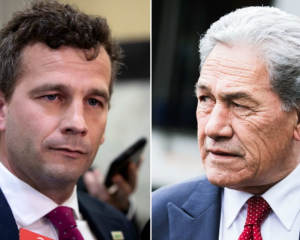The Government's controversial legislation extending the GCSB's powers to spy on New Zealanders lacks sufficient checks against abuse of power or adequate transparency and accountability, the Human Rights Commission says.
The commission has added its voice to those, including the Opposition, calling for a full and independent inquiry into New Zealand's intelligence services.
The commission this morning released a report to Prime Minister John Key on the Government Communications Security Bureau and Related Legislation Amendment Bill, the Telecommunications (Interception Capability and Security) Bill and broader human rights matters regarding surveillance.
"The Commission is concerned that the proposed Bills are wide-reaching without sufficient safeguards against abuse of power. There is inadequate oversight and inadequate provision for ensuring transparency and accountability", chief commissioner David Rutherford said.
Mr Rutherford said the commission had employed its rarely used ability to issue a report directly to the Prime Minister, "due to the seriousness of the proposed Bills' measures and the need for proper oversight of the surveillance activities of intelligence agencies".
The commission recognised that some level of surveillance was inevitable and justifiable from a human rights perspective in a democratic society.
"However, surveillance can be subject to human rights principles, protecting human rights and limiting them only when proportionate and justified and in accordance with the law", Mr Rutherford said.
"The right to privacy is fundamental in a democracy and reinforces other fundamental rights, such as rights to freedom of expression, association and assembly. The proposed restrictions on the right to privacy are too general to be proportionate to the Bills' objectives."
With recent media exposure of the extent of mass surveillance by some of the GCSB's partners in the Five Eyes international intelligence sharing arrangement, "public trust in Government intelligence agencies is at risk if surveillance activities aren't being conducted appropriately and seen to be so".
It was in the interests of intelligence agencies to have appropriate transparency and accountability mechanisms in place to maintain public trust, Mr Rutherford said.
"We believe much of the public's concerns could be alleviated if there was satisfactory oversight of surveillance powers and we propose an independent cross-party select committee to oversee intelligence agencies."
Mr Key dismissed the Human Rights Commission's concerns about the Government's controversial GCSB legislation and told the organisation to "pull its socks up" for not making a submission on time.
"I think the Human Rights Commission actually should take a step back and ask themselves the question why they didn't put a submission in on time. They are funded by the government and they were the only people that actually couldn't make the deadline."
He dismissed the commission's concerns that there would be a lack of and oversight and accountability, and that the public's trust in intelligence agencies would be further eroded.
"Actually the bill narrows the GCSB's scope in its current form, it doesn't extend it," he said.
"I actually don't think it was a very good submission at all and they need to pull their socks up. If they're going to continue to be a government-funded organisation they should meet the deadline should everyone else."
Commission spokesman Gilbert Wong said Mr Rutherford's report was not a submission, but the Prime Minister's comments pointed to another misgiving the commission had about the legislation.
The commission could have made a submission, "but there was quite a short period for people to prepare their submissions... we did seek an extension but that wasn't granted".
"Our position is that the details of how to do so and when this was to occur were not readily available, and the time for making submissions on such important and technical legislation was unreasonably short.
"That's one of the other issues, the urgency with which it's been happening."
The commission was exercising its statutory ability to directly report to the Prime Minister for only the fourth time since 1993, "because of the seriousness of the proposed bills and to allow for more time to consider the bill's impact".
"It's not something we use lightly but we feel this is something important."
The commission also recommended:
* A full and independent inquiry into New Zealand's intelligence services be undertaken as soon as possible with terms of reference agreed on a cross-political party basis, to consider the role and function of our intelligence services, their governance and oversight mechanisms and to consider the balance between human rights and national security.
* Amending the Bills in line with the submissions of the New Zealand Law Society and the Legislation Advisory Committee.
* Taking into account the submissions of Internet New Zealand, particularly as they relate to human rights.
* Human rights training for all members of New Zealand's intelligence services.
Read the full reports here.
- by Adam Bennett, NZ Herald












